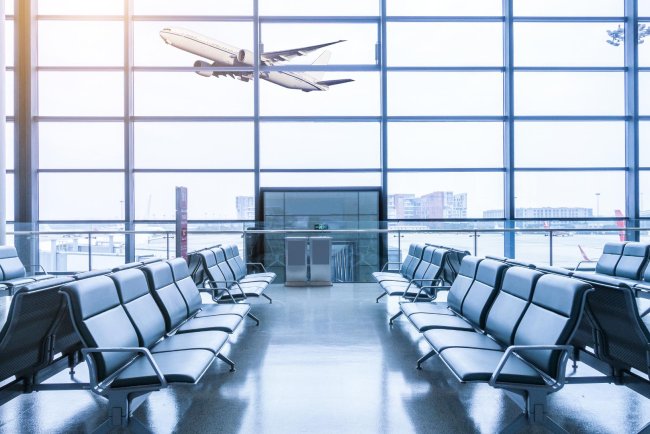FAQs on Travel Insurance and Hurricanes
1. What types of travel insurance cover hurricanes?
Travel insurance typically covers hurricanes through several types of policies:
- Trip Cancellation Insurance: Reimburses you if you need to cancel your trip due to a hurricane affecting your destination or travel.
- Trip Interruption Insurance: Covers additional costs if your trip is interrupted or cut short by a hurricane.
- Emergency Evacuation Insurance: Provides coverage for evacuation costs if a hurricane forces you to leave your destination.
- Travel Medical Insurance: Covers medical expenses related to injuries or illnesses that occur during a hurricane.
- Baggage Loss Insurance: Might cover lost or damaged luggage, though hurricane-related damage may have limitations.
2. Will travel insurance cover my trip if a hurricane is already forecasted when I purchase the policy?
Typically, standard travel insurance policies do not cover hurricanes if they were already forecasted or named when you purchased the insurance. To get coverage for such scenarios, look for policies that offer “Cancel For Any Reason” (CFAR) coverage.
3. What is “Cancel For Any Reason” (CFAR) coverage?
CFAR coverage allows you to cancel your trip for any reason, including concerns about a hurricane, and receive a partial reimbursement of your trip costs. This type of coverage usually needs to be purchased within a specific timeframe from booking your trip.
4. How can I find out if my travel insurance policy covers hurricanes?
Review your travel insurance policy's terms and conditions, focusing on the sections related to natural disasters and trip cancellation. Contact your insurance provider directly to confirm hurricane coverage specifics.
5. What should I do if a hurricane affects my travel plans?
If a hurricane impacts your travel plans:
- Contact your insurance provider immediately to report the situation and get guidance on filing a claim.
- Document all expenses related to the hurricane, including receipts and correspondence.
- Follow any instructions provided by your insurer for claim submission and processing.
6. Are there any exclusions related to hurricanes in travel insurance policies?
Yes, some policies may exclude coverage for hurricanes if they were already forecasted or if you purchased the policy after a hurricane was named. Always check the policy details for specific exclusions related to natural disasters.
7. How does trip cancellation insurance work if a hurricane affects my destination?
If a hurricane makes your destination uninhabitable or results in significant travel disruptions, trip cancellation insurance can reimburse you for non-refundable expenses. The coverage typically includes hotel, flight, and other travel-related costs.
8. Does travel medical insurance cover injuries from hurricane-related incidents?
Travel medical insurance can cover injuries or illnesses that occur due to hurricane-related incidents if they are deemed a medical emergency. However, coverage may vary based on the policy and the nature of the emergency.
9. What is emergency evacuation insurance and how does it apply to hurricanes?
Emergency evacuation insurance covers the costs of evacuating from a dangerous situation, such as a hurricane. It includes transportation to a safer location or back to your home country if necessary due to a hurricane’s impact on local infrastructure.
10. Will my baggage loss insurance cover damage due to hurricanes?
Baggage loss insurance generally covers lost or damaged luggage, but coverage for hurricane-related damage might be limited or excluded. Check your policy for specific terms regarding natural disasters.
11. Can I purchase travel insurance after a hurricane has been named?
Most travel insurance policies will not cover hurricanes that have already been named or forecasted at the time of purchasing the insurance. For future trips, consider buying insurance well in advance and look for policies that offer broader cancellation options.
12. What steps should I take if I need to file a claim due to hurricane-related travel disruptions?
To file a claim:
- Contact your insurance provider as soon as possible to report the disruption.
- Gather documentation, such as receipts, proof of cancellation, and any correspondence related to the hurricane.
- Follow the insurer’s instructions for submitting your claim and any required forms.
13. How do I ensure that I have comprehensive hurricane coverage in my travel insurance policy?
To ensure comprehensive coverage:
- Review policy details carefully, especially sections on natural disasters and exclusions.
- Ask your insurance provider specific questions about hurricane coverage.
- Consider purchasing CFAR coverage for added flexibility.
14. Are there any limitations to emergency evacuation coverage during a hurricane?
Emergency evacuation coverage generally includes transportation costs to a safer location. However, limitations may apply based on the insurer’s policy terms, such as the extent of coverage for logistical support or the duration of evacuation.
15. How early should I purchase travel insurance to get coverage for potential hurricanes?
Purchase travel insurance as soon as you book your trip to maximize coverage opportunities. Early purchase helps ensure that you are protected against unforeseen events, including hurricanes, if they occur after buying the policy.
16. What if I am already traveling when a hurricane hits?
If you are traveling and a hurricane impacts your destination, contact your insurance provider immediately. Depending on your policy, you may be eligible for trip interruption benefits, emergency evacuation, and additional coverage for incurred expenses.
17. Can travel insurance cover additional costs incurred due to hurricane-related disruptions?
Yes, trip interruption insurance can cover additional costs incurred due to a hurricane, such as extra accommodation, meals, and travel expenses. Ensure that your policy includes these benefits and check for any applicable limits.
18. Are there any specific travel insurance providers known for good hurricane coverage?
Some insurance providers are known for offering comprehensive coverage for natural disasters, including hurricanes. Research and compare policies from multiple providers, focusing on those with high ratings for natural disaster coverage.
19. What happens if my travel insurance claim for a hurricane is denied?
If your claim is denied, you can request a review of the decision from your insurance provider. Provide all necessary documentation and details to support your claim. If the issue remains unresolved, consider escalating the matter to regulatory agencies or seeking legal advice.
20. How can I stay informed about hurricane risks affecting my travel plans?
Stay updated by:
- Monitoring weather reports and official hurricane warnings.
- Checking travel advisories from relevant authorities.
- Staying in contact with your travel insurance provider for updates and advice related to your coverage.





















